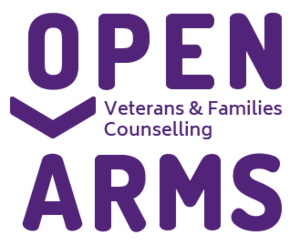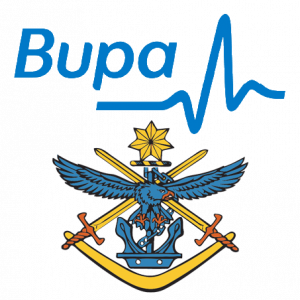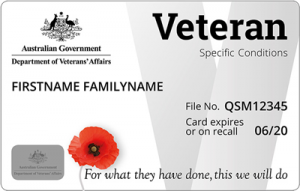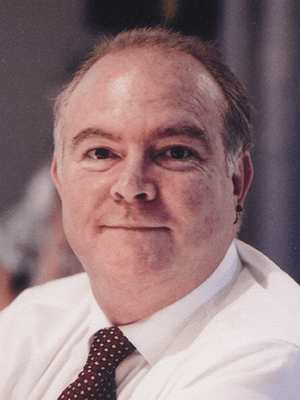David G Broadbent Biography
Consulting Psychologist – 35 years in mental health
Qualifications: B.A. (Psych-Hons), F.A.I.M, F.I.S.Q.E.M.
Background:
David was born in the early 60’s. One of his earliest memories was having the day away from school to sit at home with the family watching Neil Armstrong walk on the moon.
David’s father passed away suddenly at the age of thirty-eight (38) leaving behind a wife and two (2) kids. His mother, and other family, did an exceptional job raising two children from a very young age.
David enjoyed sport during his schooling and represented in Rugby League, Soccer & Hockey – all whilst also preparing for the NSW Higher School Certificate (HSC). Upon completing his education David had the opportunity of joining the Royal Australian Army (as an Officer cadet), The NSW Police Force, and The BHP Co Pty Ltd (as a Metallurgist). David chose the BHP.
BTW, In the final years of his schooling David joined the Royal Australian Army (Reserve).
Employment Experience:
David G Broadbent Initially accepted a traineeship as a Metallurgist with the BHP Co in Newcastle. He stayed there for a fraction over two (2) years. This was in the early 1980’s and BHP went from a workplace of almost 13,000 to less that 5,000 in only a couple of years. David had been identified as one to be retrenched in 1983 – he believes that the many days he spent at the beach (instead of studying) were a significant contributor to that departure.
David’s departure from the BHP presented an opportunity to attend Newcastle University. He had been an active telephone counsellor with the LIFELINE organisation since the age of nineteen (19), so believes this may have contributed to his decision to study Psychology. David spent four (4) years at Uni – graduating with an Honours degree majoring in Psychology.
Upon leaving University David applied for a position as a Rehabilitation Counsellor with the Commonwealth Rehabilitation Service (CRS) – where he stayed for ten (10) years and one (1) day – yes, there’s a story behind that as well. During his time at CRS David designed and implemented the very first outpatient chronic pain management program in the Hunter Valley (NSW, Australia) and became a contributing member of the International Association for the Study of Pain (IASP). He also became known as a national subject matter expert in the area of Occupational Stress. David was asked to present at Australia’s first Occupational Stress Conference and was a key contributor to the “Occupational Stress Management” program developed by CRS. He still remembers the early mornings getting the flight from Maitland to Canberra – the pilot often having to scream at the kangaroos before take-off.
In 1997 David, with the support of his wife, decided to leave CRS behind and “hang a shingle” as a Consulting Psychologist – serving the NSW Hunter Valley. David recalls the conversation they had where they decided that “as long as the business pays for the fuel in the car that would do for the fist year”. As things turned out, the “psychology business” made a profit from week one and has been operating now for almost twenty-five (25) years.
In the early days David leveraged his experience within the workers compensation rehabilitation space and achieved accreditation as a Rehabilitation Provider under the NSW Workcover Scheme. He maintained this accreditation for almost a decade – finally relinquishing it due to a belief that the “system” was more focused on saving costs – at the expense of the psycho-behavioural recovery for injured workers. To this date, he has not changed his mind. David still holds the highest RTW rate of any rehabilitation provider within all Australian jurisdictions (98%).
David has morphed his high level experience, supporting individuals, into a reputation as one of the World’s foremost speakers on Safety Culture and Safety Leadership and how these things fundamentally affect our workplaces.
In 2004 David was asked to offer his thinking about leadership practices and their effects on workplace health and safety at the International Congress of Psychology in Beijing, China. It was after that presentation that he was asked to further develop his thinking and he created the globally recognized Transformational Safety Culture & Leadership Surveys.
He has also presented the Keynote Address, and other presentations, at many national and international corporate conventions. He is highly sought after globally as someone who can make the complex simple, and do so with a sense of “fun”.
In the latter part of 2008 David was involved in a near fatal cycling accident. You would not believe this accident occurred less than one week before he was due to return to South Africa, to work with the senior leadership team of one of that country’s largest industrial support businesses. David has been told that whilst he was laying semi-conscious in the “emergency room” he was heard to keep saying to the attending doctors, “you need to put me back together I’m going to South Africa next week”. Well, as you can imagine, he never got there.
This accident resulted in David experiencing a multi-punctured lung, and multiple fractures – they stopped counting at 24 – he should not be alive. All the ribs on the left hand side were fractured; both front and back. The surgeon described David’s injuries as though “a hand grenade had exploded on the inside”. He was literally screwed back together; his upper left arm/shoulder is now largely Titanium. David suggests that his net worth goes up & down with the stock market. David is forever grateful to the global mining community for their efforts in providing the metal that holds him together.
David also recalls vividly lying on the road immediately after that accident. After having a “bit of an audit” just making sure the fingers were working etc he then began to consider what might the future hold. Having spent much of his career in the injury management space, David was “scared” that he might end up being a “chronic pain patient” and also that there might be Post Traumatic Stress Disorder (PTSD) in the mix. As things turned out David ended up with both.
David is one of only a handful of professionals, in the global safety community, who can speak with experiential authority on the accident causation sequence, risk tolerance, trauma recovery etc. (and maybe even human error). In fact, David is known as a powerful critic of many of the “measures” that are traditionally used in Safety. He has been heard saying “….if we just keep measuring what we are getting wrong by way of accidents and disasters, we make invisible what we are getting right – so don’t be surprised when you don’t see the ‘bad stuff’ coming. Why would you?”
David has also developed the SAFE-T-SOS Psycho-Behavioural Systems. He did so because the majority of BBS systems have been shown to either fail (+70%) or not be sustained in the medium to long term (+80%). By leveraging the “power” of behavioural psychology and integrating Transformational Safety Leadership (TSL) competencies throughout the behavioural paradigm, the SAFE-T-SOS Psycho-Behavioural Systems are able to deliver unprecedented and sustained organisational outcomes.
More recently David has responded to a growing global interest in the application of Resilience to business outcomes. He has developed the world’s first safety development workshop which incorporates Resilience Engineering and High Reliability Organising in an offering which has been called “Building a Resilient Safety Culture”.
Since David was rebuilt he continues his own journey working globally with many people and companies in support of improved health and safety performance.
As might be expected since COVID19 David’s international travel just ended.
David has always been a supporter of first responders as well as the military – coming from his Army days, maybe. He now spends much of his time helping the serving military and veterans navigate a myriad of challenges. For many, this involved Post Traumatic Stress Disorder (PTSD). As indicated, David actually developed that condition himself as a consequence of his cycling accident.
David was introduced to Eye Movement Integration Therapy (EMIT) by Judy Reader. Without doubt Judy is amongst Australia’s foremost practitioners of Eye Movement Therapy.
Eye Movement Therapy is considered the Gold Standard in the treatment of PTSD and David regularly remains gob-smacked at the “magic” that EMIT can provide to patients with long term PTSD challenges – along with many other conditions as well.
Trauma Specific Training/Experience
Level 4 EMIT/EMDR Practitioner and Trainer
Advanced Critical Incident Stress Management (CISM) Training – Professors George Everly and Jeffrey Mitchell
Managing Traumatic Incidents in the Workplace – A Leaders Guide: (David G Broadbent – author)
Qualifications:
Bachelor of Arts (Psych-Hons)
Diploma in OH&S
Certificate IV in Assessment & Workplace Training
Advanced Trauma Specialist – International Critical Incident Stress Foundation
Advanced Coach – MLQ Leadership Development Systems
Society Memberships:
Fellow – International Safety Quality Environment Management Association
Fellow – Australian Institute of Management
Member – Australian Association of Psychologists
Member – Society of Petroleum Engineers
Member – International Association of Coaches
Member – International Critical Incident Stress Association
Member – Australasian Military Medicine Association
Areas of Counselling Specialties:
Post Traumatic Stress Disorder, Vocational Rehabilitation, Chronic Pain Management.
Direct Treatment Pathways:
David is able to provide all Services via Medicare, Open Arms, BUPA – ADF, DVA Health Cards, and Workers Compensation/CTP.
 |
 |
 |
 |
 |
 |
Other team member profiles:
Cath Edwards
Grahame Smith
Judy Reader
Ken Schmidt
Linda Elsey

